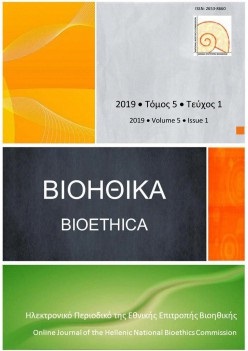Neurosciences in psychiatric expert reports: findings from focus groups

Abstract
Neuroscience is a rapidly growing scientific field, whose recent findings gain major interest in the field of criminal law and forensic psychiatry. Neuroscientific evidence is increasingly being used in criminal trials as part of psychiatric testimony, particularly in the US, but also in Europe.
This article presents the findings of an empirical study with focus groups involving judges, lawyers, psychiatrists and neurologists, aiming to examine through a focus group interaction process, the use of neuroscientific data in psychiatric testimony from the perspective of all the actors involved in the criminal proceedings. In particular, the study aims to examine the way that neuroscientific evidence would likely be used by lawyers, the way that this evidence is perceived and interpreted by judges, as well as the opinion of psychiatrists - experts and neuroscientists concerning the usefulness, effectiveness and limitations of neurosciences’ use in criminal courts, especially in relation with the assessment of guilt and the assessment of the recidivism risk posed by an offender.
Article Details
- How to Cite
-
Γκότση (Georgia Martha Gotsi) Γ. Μ. (2019). Neurosciences in psychiatric expert reports: findings from focus groups. Bioethica, 5(1), 46–66. https://doi.org/10.12681/bioeth.20835
- Section
- Original Articles

This work is licensed under a Creative Commons Attribution 4.0 International License.
Authors who publish with this journal agree to the following terms:
- Authors retain copyright and grant the journal right of first publication with the work simultaneously licensed under a Creative Commons Attribution CC BY 4.0 License, which allows for immediate free access to the work and permits any user to read, download, copy, distribute, print, search, or link to the full texts of articles, crawl them for indexing, pass them as data to software, or use them for any other lawful purpose. Appropriate credit must be given by citing the author(s) and the original publication in this journal.
- Authors are able to enter into separate, additional contractual arrangements for the non-exclusive distribution of the journal's published version of the work (e.g. post it to an institutional repository or publish it in a book), with an acknowledgement of its initial publication in this journal.
We encourage authors to deposit their articles, as well as data underlying the publications, in institutional and/or other appropriate subject repositories.
Bioethica permits and encourages authors to archive the final publication pdf in institutional (e.g. the repository of the National Hellenic Research Foundation) or other appropriate subject repositories (e.g. SSOAR repository for social sciences), in compliance with institutional and/or funder open access policies, after publication in the BIOETHICA. Authors must provide bibliographic details that credit publication in the journal, as well as related funding details (when applicable).
Lists of institutional and other subject-based academic open access repositories can be found listed by country at the registry http://opendoar.org/countrylist.php
If your institution does not possess a repository you may deposit a copy of your paper at no cost with www.zenodo.org , the repository supported for open access research in the EU by the European Commission, through the project OpenAIRE (www.openaire.eu )


